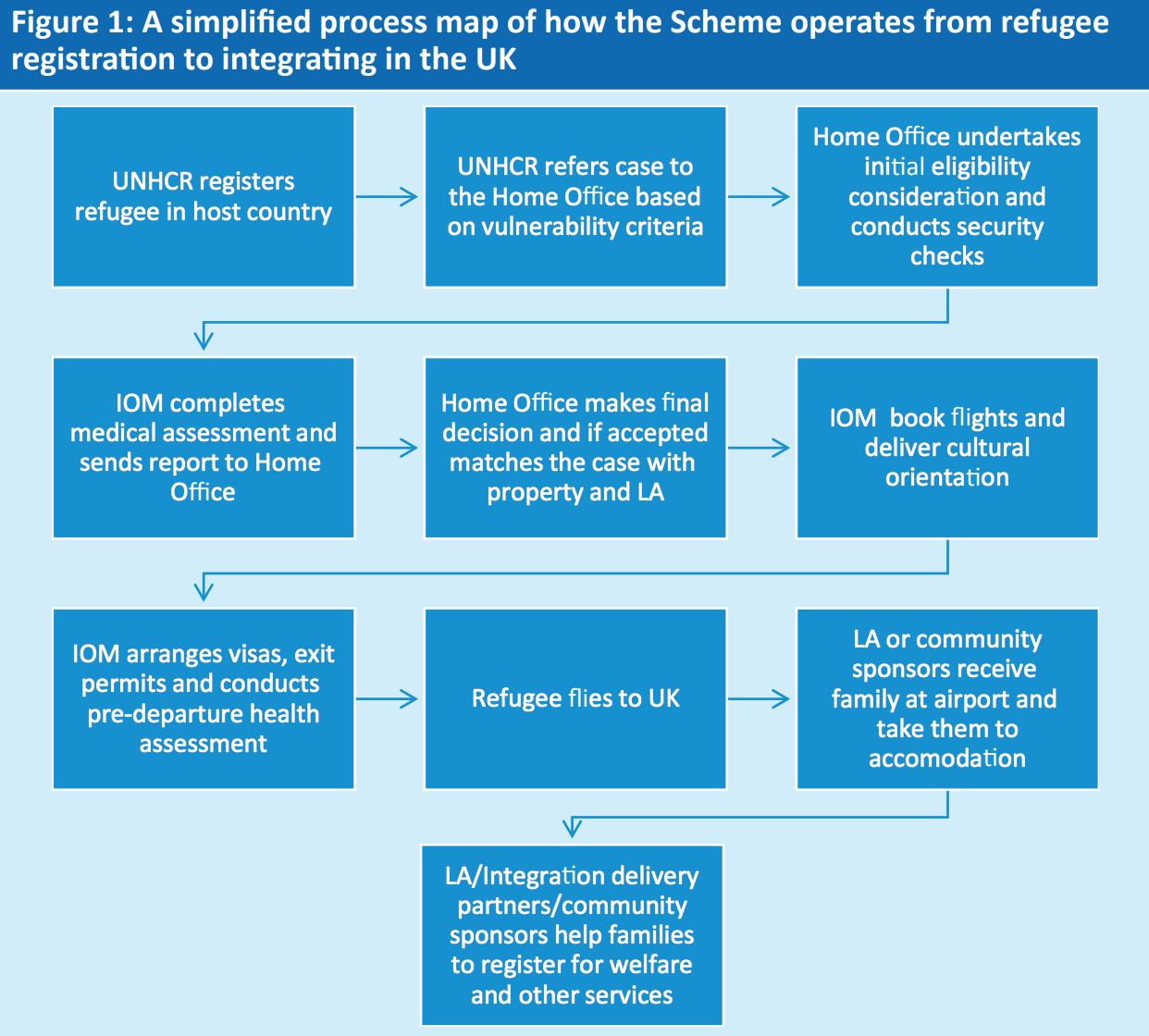- BY CJ McKinney

Immigration inspector praises Syrian refugee resettlement programme
THANKS FOR READING
Older content is locked

A great deal of time and effort goes into producing the information on Free Movement, become a member of Free Movement to get unlimited access to all articles, and much, much more
TAKE FREE MOVEMENT FURTHER
By becoming a member of Free Movement, you not only support the hard-work that goes into maintaining the website, but get access to premium features;
- Single login for personal use
- FREE downloads of Free Movement ebooks
- Access to all Free Movement blog content
- Access to all our online training materials
- Access to our busy forums
- Downloadable CPD certificates
Independent reviews of public institutions are critical by design, which is why almost every report ever published by the Independent Chief Inspector of Borders and Immigration is damning of the Home Office to a greater or lesser extent. Today’s review of the government programme for resettling Syrian refugees is a notable and welcome exception.
The chief inspector, David Bolt, found that the scheme is “essentially effective” and that “there is every reason to believe” that the target of 20,000 refugees to be brought to the UK by May 2020 will be met. He does, at the risk of “nit-picking”, have some thoughts on how the scheme could be improved, particularly in terms of ensuring that refugees are properly integrated once they arrive.
An Inspection of the Vulnerable Persons Resettlement Scheme looks at progress toward the 20,000 target announced by David Cameron in 2015, how Syrians are selected for the programme and the subsequent integration efforts. As is customary for such reports, the focus is on “efficiency and effectiveness”, not rights and wrongs (this is not the place for arguments about whether the UK should be doing more to help, for instance).
The scheme involves refugees from the fighting in Syria who are still in the Middle East being referred for resettlement to the UK by the United Nations High Commissioner for Refugees, with travel arranged by the International Organisation for Migration and accommodation in Britain arranged by local councils.

The review notes that half the target of 20,000 refugees had arrived by the end of last year — disproving doubts expressed by the Home Affairs committee of MPs in 2016 — with the “most vulnerable” successfully prioritised by UNHCR. Over 40% of the families resettled included one or more “survivors of violence or torture”.
Part of the uncharacteristic efficiency on show may have to do with the fact that officials were geared up to help people rather than refuse them. Despite the perennial issue of high staff turnover, the report notes that
managers and staff were highly motivated. Staff told inspectors that there was a sense that they were making a real difference to refugees’ lives, and “the culture” felt different to other parts of the Home Office they had worked in.
Interestingly, the government’s much-criticised benefit cap worked to inhibit the laudable work of the resettlement programme. A dozen councils reported that “the Benefits Cap was acting as a disincentive to them offering larger properties for resettled refugees, as families of 5 and 6 found it impossible to manage on the capped income”. The Department for Work and Pensions refused Home Office requests for exemptions in specific cases on the ground that “it did not want to be seen to be prioritising refugees over other vulnerable individuals”. In the 33 rejected referrals examined by inspectors, 20 were turned away on the basis of family size.
The report contains a number of specific criticisms, including the “ponderous” way in which pregnant women were dealt with. Inspectors found that “all pregnant cases were paused until after the child was born, even where there was no indication of any risk and the woman was within ‘fit to fly’ timescales”. The report also found fault with the integration plan:
Given that refugees were waiting on average 35 weeks from acceptance on the Scheme to resettlement, a 2-day cultural orientation workshop delivered 2 weeks prior to departure appeared to be a case of “too little, too late”, especially as refugees were arriving in the UK with little or no English.
Overall, though, Mr Bolt writes that everyone involved “deserves enormous credit for what they have managed to achieve to date”. He made seven recommendations for improvements, all of which the Home Office has either accepted or “partially accepted”.
